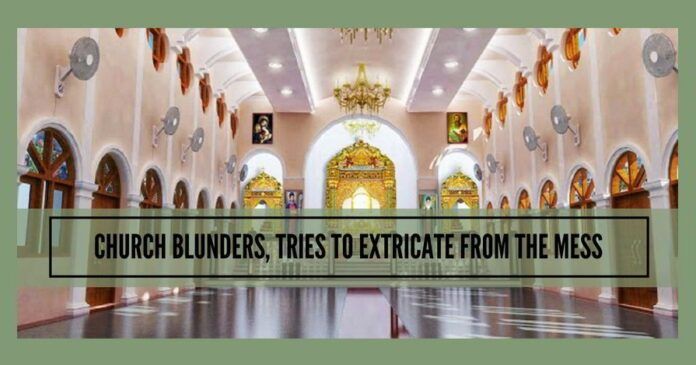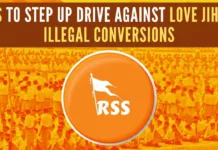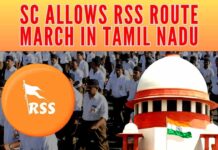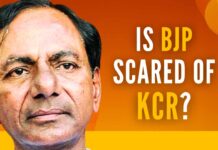
The Archbishop’s office made feeble attempts to dispel the impression, claiming that the appeal did not mention any political party or leader.
An interesting set of developments that took place over the last few days in the country has landed the Church in a piquant situation. Delhi Archbishop Anil Couto issued a letter to all his parish priests, calling for a year-long prayer campaign to lift India out of the “turbulent political atmosphere” that threatened democracy and secularism. The anti-BJP lobby was prompt in interpreting the letter an indictment of the Modi Government and an endorsement of their perception that secular and democratic values were under attack. The Archbishop’s office made feeble attempts to dispel the impression, claiming that the appeal did not mention any political party or leader and that the letter was for the good of the country.
But then Vatican News spilled the beans. In a report, it unambiguously said that the target was obviously the “pro-Hindu Modi Government”. The Bharatiya Janata Party and the RSS, besides a clutch of other so-called ‘pro-Hindu’ outfits, slammed the statement and said it betrayed not just the prejudices of the Church against the country’s elected Prime Minister but that the Church had also sought to wade into politics — something it ought not to be involved in. Now it became indeed difficult for the Church in India to maintain that the Archbishop’s letter was not as innocuous as his supporters had made it out to be.
In the run-up to the Nagaland Assembly election earlier this year, the Baptist Church in that State asked “believers” to not vote for the BJP.
Archbishop Couto appeared on a few television news channels to maintain that his letter was being grossly interpreted, but he did not utter one word against those who were using his appeal to construct the narrative that the Modi regime was anti-Christian. It became clear that the Church had to do more to wriggle out of the self-created mess. Senior officials of the Church in India, including a Cardinal, then came on news channels and said, essentially the following: That the Church had no grievances against either the Prime Minister or his Government; that the Church was working alongside the Government in the development of the nation; that on occasions when they had the opportunity to meet the Prime Minister or his senior Cabinet colleagues, they were extended full hospitality; that Indian Christians did not live in fear (though there was some anxiety, and even that was not specific to India; across the world there was a similar challenge); that if a “wrong” perception had been created by the Archbishop’s letter, the Church would explore the possibility of issuing a statement to set the record straight; and that Vatican News was not the official mouthpiece of the Vatican and so its report must not be taken as being the Vatican’s position on the subject.
If this indeed has been the stand of the Church in India, what then was Archbishop Couto up to? He never elaborated on the “turbulent political atmosphere” nor did he explain at length about the threat to secularism or democracy. If his written appeal was a call of conscience, where then was the Delhi Church’s conscience when more than 3,000 Sikhs had been massacred in 1984? The churches outside Delhi have been as silent. Only a few days ago, the nation witnessed large-scale violence and deaths in the run-up to panchayat elections in West Bengal. Both democracy and secularism were mocked at by the ruling Trinamool Congress regime led by Mamata Banerjee, but the Church there said not a word. The need for prayers never arose.
It is not for the first time in India that the Church has issued political appeals — direct or nuanced. In the run-up to the Nagaland Assembly election earlier this year, the Baptist Church in that State asked “believers” to not vote for the BJP, on the pretext that the BJP-RSS had “really become a threat”. The Nagaland Baptist Churches Council stated that “believers” must not surrender to forces that had sought to “pierce the heart to Jesus Christ”. The BJP State unit naturally considered the extraordinary step as a “kind of threat to us”.
The Catholic Church in Goa too has dabbled in various issues that were far removed from its area of activity and were political in nature.
At around the same time, the Catholic Church in neighboring Meghalaya, where an Assembly election was due, held a ‘day of protest’ in the Garo Hills region to supposedly express concern over ‘attacks on Christian minorities’ in the country. One Catholic priest said, “When one Christian is affected, all of us are affected.” Another priest was reported to have said that if the BJP came to power, it would “bring in rules and regulations to victimize Christians”. The Congress had expectedly exploited these remarks to seek electoral gains. It’s a different matter that despite running a communal campaign in both Nagaland and Meghalaya, the Congress could not form the Government in either of the two States.
The Catholic Church in Goa too has dabbled in various issues that were far removed from its area of activity and were political in nature. During the official language movement in the second half of the 1980s, which had turned violent, the Church had openly sided with the lobby which demanded sole official status for Konkani and opposed a similar status to Marathi — the other widely spoken language there. Years later, the Church also took sides in the agitation over the medium of instruction in Government-run or Government-aided primary schools. The Church had also opposed the Konkan railway project, throwing its lot with sundry activists who claimed it would destroy the State’s coastal eco-system. Today, many among the Catholic clergy will be using the same Konkan Railway service to travel from Goa to Mumbai!
Every time a responsible official of the Church in India talks of a threat to democratic values in present times, he should bear in mind the contents of the book, God’s Bankers, which is an exposé of how the Vatican bank from the late-1930s to mid-1940s indirectly helped the Nazi and Fascist regimes and leaders in Europe. The book is not authored by an RSS or BJP ideologue but a finalist for the Pulitzer Prize in History, Gerald Posner, and it was published in 2015. The Church has no doubt come a long way since then, but it must remember its history before lecturing others.
Note:
1. Text in Blue points to additional data on the topic.
2. The views expressed here are those of the author and do not necessarily represent or reflect the views of PGurus.











True I have also started reading the articles in this website regularly
Very good analysis PGurus. Please be consistent with your unbiased and factual reporting and dont become one of those main stream media after gaining popularity or people will stop believing
Continue your factual & unbiased reporting. You are doing immense service, it has become a daily habit for me to read P gurus .
Church does not want anything from a Hindu, except all money that Hindus hold
Great article.
When election is due they clamour for restoration of democracy and secularism. During natural disasters they secretly attempt to convert the victims in the guise of rendering service.
Thanks a lot for bringing a lot of unknown facts to the fore. It helps us understand the situation better, and serves as a medium of education, what we never will get to read in school history books.
There is only one real Christian i.e Christ and he also no more.these ppl are like a green snake in a green gross.
Fantastic observation